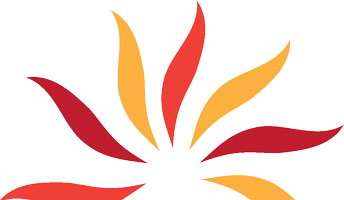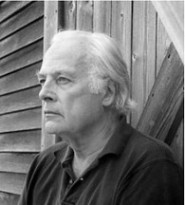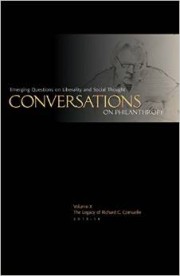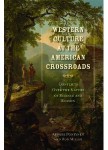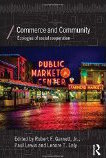2017 Conference on Voluntary Governance
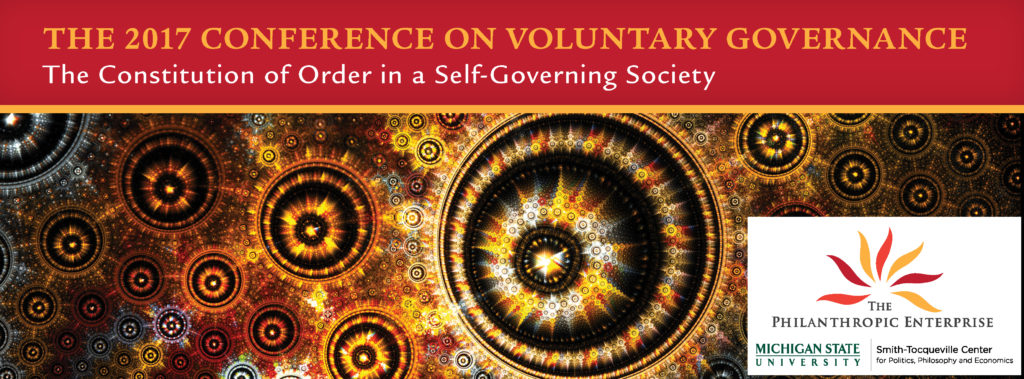
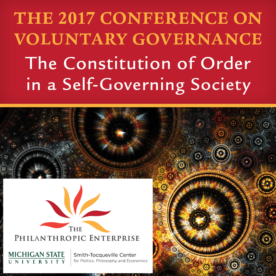
The 2017 Conference on Voluntary Governance
The Constitution of Order in a Self-Governing Society
![]()
December 1-3, 2017
Kellogg Hotel & Conference Center
Michigan State University
East Lansing, MI
The Philanthropic Enterprise and the Smith-Tocqueville Center at Michigan State University are pleased to host the 2017 Conference on Voluntary Governance. The Conference on Voluntary Governance is a new initiative seeking to cultivate a community of scholars working to expand our understanding of the diverse patterns of association, problem solving, conflict resolution, and resource management that emerge when people are self-governing—and to apply the emerging insights to contemporary issues in social philosophy, political economy, policymaking, philanthropy, and social enterprise.
The theme for our 2017 conference is “The Constitution of Order in a Self-Governing Society.” Observing the emergence of the democratic age in the early nineteenth century, Alexis de Tocqueville wrote that “the science of association is the mother science; the progress of all the rest depends upon the progress it has made.” The Conference on Voluntary Governance seeks to draw attention to and explore questions that can help advance the Tocquevillian science of association in the new economic, social, cultural and technological circumstances of the 21st Century.
Conference Keynote Speaker, Saturday, December 2
Roberta Herzberg, George Mason University
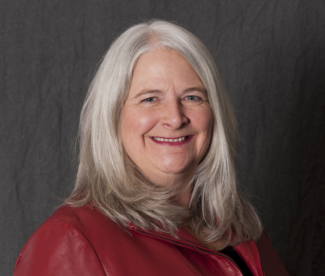
Keynote Address
Taking Care of Each Other:
Social Welfare Provision In a World of Voluntary Governance
Alexis de Tocqueville marveled at the propensity for social association that prepared Americans for their experiment with self-governance and democracy. The wide range of religious, social and civic associations he observed allowed Americans to address collective interests without the formal authority of government. Today, Americans continue to associate voluntarily, but they do so alongside a vastly expanded social welfare state that shapes the incentives and opportunities within this space. In this discussion, we will explore the degree to which the growth of the welfare state has changed the dynamic Tocqueville observed and consider how that earlier vibrancy might best be retained or reinvigorated today.
Dr. Roberta Herzberg is a Distinguished Senior Fellow in the F.A. Hayek Program in Philosophy, Politics, and Economics at the Mercatus Center at George Mason University. Her research and teaching focus on political economy, public choice, and health care policy. She is the immediate past president of the Public Choice Society (2014-2016), a current board member of the Association for Private Enterprise Educators, The Philadelphia Society, and The Friends of the Austrian Economic Center, and is a member of the Mont Pelerin Society and the Philadelphia Society.
Dr. Herzberg joined the Hayek Program from the Individual Freedom and Free Market portfolio at the John Templeton Foundation. She previously held faculty and administrative positions at Utah State University and Indiana University at Bloomington where she worked with Elinor and Vincent Ostrom in the Workshop in Political Theory and Policy Analysis. She has served as the principal investigator on a number of academic, state, and federal grants that examine the relationship between policy, institutions, and individual incentives. A frequent participant in the policy process, she served in leadership positions on several state policy committees including the Utah Health Policy Commission, the Small Employer Health Benefits Group, the Medical Education Council, and the Health Advisory Council. Dr. Herzberg has long been interested in the debate on liberty and the role of government in individuals’ lives and regularly leads seminars and lectures on institutional analysis, public policy, the Bloomington School, and the contributions of F.A. Hayek.
Featured Speaker, Friday, December 1
Jeffrey Tucker, Foundation for Economic Education
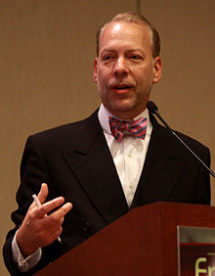
After Dinner Remarks
Self-Governance in the Digital Age
Jeffrey Tucker is director of content for the Foundation for Economic Education, Chief Liberty Officer of Liberty.me, research fellow at the Acton Institute, policy adviser of the Heartland Institute, founder of the CryptoCurrency Conference, member of the editorial board of the Molinari Review, and author of five books. He has written 150 introductions to books and many thousands of articles appearing in the scholarly and popular press. A prolific speaker and author, Tucker recently published Bit by Bit: How P2P Is Freeing the World , with an introduction by Patrick Byrne of Overstock.com and a foreword by investor Roger Ver.
Call for Papers
Deadline for Submission: March 1, 2017
The 2017 Conference on Voluntary Governance
The Constitution of Order in a Self-Governing Society
December 1-3, 2017
Kellogg Hotel & Conference Center
Michigan State University
East Lansing, MI
The Philanthropic Enterprise and the Smith-Tocqueville Center at Michigan State University are excited to issue a call for papers for the 2017 Conference on Voluntary Governance. The Conference on Voluntary Governance is a new initiative seeking to cultivate a community of scholars working to expand our understanding of the diverse patterns of association, problem solving, conflict resolution, and resource management that emerge when people are self-governing—and to apply the emerging insights to contemporary issues in social philosophy, political economy, policymaking, philanthropy, and social enterprise.
The theme for our 2017 conference is “The Constitution of Order in a Self-Governing Society.” Observing the emergence of the democratic age in the early nineteenth century, Alexis de Tocqueville wrote that “the science of association is the mother science; the progress of all the rest depends upon the progress it has made.” The Conference on Voluntary Governance seeks to draw attention to and explore questions that can help advance the Tocquevillian science of association in the new economic, social, cultural and technological circumstances of the 21st Century.
We are particularly interested in engaging the research programs and literatures that have emerged in recent years to inform our approach to understand better areas of voluntary cooperation distinct from the market or the state in hopes that, by doing so, we will understand their distinctive social processes and roles in the institutional landscape. Developments in fields as diverse as Austrian economics, constitutional political economy, civic studies, institutional analysis and design, applied ethics, public choice, comparative institutional analysis, constitutional political economy, emergent order studies, experimental economics, the science of complexity, law and economics, history, political theory, philosophy, and others promise to contribute new approaches to re-conceptualizing society with a more robust understanding of the origin, functions, and roles of voluntary associations and self-governance.
Paper Proposals: The program committee welcomes paper proposals featuring original theoretical, qualitative, and/or quantitative research that advance our understanding of the ideas, institutions, and organizations that facilitate voluntary governance. To facilitate conversation, all conference papers will be presented in plenary sessions; we therefore encourage the submission of papers that can be made accessible to those working outside the author’s primary disciplinary and methodological areas. Areas of particular interest include, but are not limited to, the following types of studies:
1) papers that explore conceptual, rhetorical, legal, and epistemic dimensions of voluntary governance (including related conceptions of “private governance” and “private ordering”) that help us understand what beliefs, incentives, and institutions foster (or impede) social coordination through voluntary cooperation and exchange;
2) papers at the intersection of the Austrian and Bloomington schools that build on Hayek and the Ostroms’ work on the possibility and practice of bottom up social ordering;
3) case studies that document the institutions people have developed in particular times and places to identify and pursue shared goals or examine empirical evidence to discern timeless principles of association that work to foster human flourishing;
4) studies of the role of political competence and public entrepreneurship in democratic and liberal systems, as well as of the nature and functions of civics in self-governance systems;
5) studies that examine, critique, and offer new alternatives to the predominant normative and descriptive paradigms for understanding the logic of voluntary action and the pluralist landscape of voluntary associations (e.g., Cornuelle’s conception of the “independent sector,” the Ostroms’ concept of “the commons”, Berger’s and Neuhaus’ framework of “mediating structures,” Salamon’s theory of “third-party government,” the ubiquitous concepts of market failure and voluntary failure, etc);
6) studies that advance our understanding of the political economy of philanthropic and not-for-profit (NGO) entities by exploring the rationales for charitable action, investigating how government policy and direct expenditures influence philanthropic decisions, or document how not-for-profits engage in rational activity without engaging in rational economic calculation, including case studies that examine social learning in non-profits or the use of social networks/social media to foster a more robust civil society;
7) studies that shed light on contemporary issues in public policy such as the rationale for tax-exemption and the charitable deduction or the recent claims that government support for charitable activity makes for good economic policy.
Submission Instructions: Paper proposals should be no more than 400 words and should include full contact information of the author(s). Proposals should be submitted to the program committee at [email protected]. To be considered for inclusion in the conference program, all proposals must be submitted by March 1, 2017. Acceptance decisions will be made by June 1, 2017. Final papers must be submitted by November 1, 2017.
Travel Support: The generosity of conference sponsors will enable us to provide modest financial support for lodging, meals and travel for presenters.
2017 Conference Committee
Dr. Lenore T. Ealy, The Philanthropic Enterprise (co-chair)
Dr. Ross Emmett, Michigan State University (co-chair)
Dr. Paul Dragos Aligica, George Mason University (co-chair)
Dr. Robert Garnett, Texas Christian University
Dr. Steven Grosby, Clemson University
Dr. Roberta Herzberg, George Mason University
Dr. Jayme Lemke, George Mason University
Dr. Paul Lewis, King’s College, London
Dr. David Prychitko, Northern Michigan University
Dr. Virgil Storr, George Mason University
Dr. Edward Stringham, Trinity College
Dr. Daniel Smith, Troy University
Friday, December 1, 2017
2:00- 4:00 p.m. Registration
4:00-5:30 p.m. Voluntary Governance: Foundations, Failures, and the Future
Chair: David Prychitko, Northern Michigan University
Beyond Market Failure and Government Failure
Adam Martin, Texas Tech University & Glenn Furton, Texas Tech University
Rethinking Libertarianism: Elizabeth Anderson’s Private Government
David Ellerman, UC Riverside
A New Civics for a New Age
Karol Edward Soltan, University of Maryland
5:30 p.m. Reception & Buffet
7:00 p.m. Self-Governance in the Digital Age
Jeffrey Tucker, Foundation for Economic Education
Saturday, December 2, 2017
8:30 a.m.-10:00 a.m. The Emergence of Self-Governance in Law, Markets, and Civil Society I
Chair: Ross Emmett, Michigan State University
The Constitution of the Law of Wrongs: Intellectual Property and Self-Governance
Adam MacLeod, Faulkner University
The Prospects of Privately Enforced Smart Contract Technology: A Case Study of Open Bazaar
Edward Peter Stringham, Trinity College & The American Institute for Economic Research
Governing the Trade in High Value Fine Art
Anja Shortland, King’s College, London & Andrew Shortland, Cranfield University, UK
10:30 a.m.-12:00 p.m. Polycentricity & Challenges of Institutional Design
Chair: Roberta Herzberg, George Mason University
Polycentric Water Governance in California
Stewart Dompe, George Mason University
Political decentralization against political centralization? A praise in favor of the Spanish-American ‘cacique’
Fernando Hernández Fradejas, University of Valladolid, Spain
Latin American Civil Society: Bottom-Up or Top-Down?
Nathan P. Goodman, George Mason University
12:00 p.m.-2:00 p.m. Lunch Break
2:00 p.m. – 3:30 p.m. The Emergence of Self-Governance in Law, Markets, and Civil Society II
Chair: Virgil Storr, George Mason University
The Rise of Robust Civil Society in 19th Century America
Emily Skarbek, Brown University
Club Women and the Provision of Local Public Goods
Jayme Lemke, George Mason University & Julia Norgaard, George Mason University
A Case Study of Self-Governance Among the Old Order Amish Communities
Rosemarie Fike, Texas Christian University
3:45- p.m.–4:30 p.m. Reflection Session
Facilitator: Heather Wood Ion, The Epidemic of Health
6:00 p.m. Reception
7:00 p.m. Dinner
Keynote Address: Taking Care of Each Other: Social Welfare Provision Through Voluntary Governance
Roberta Herzberg, Distinguished Senior Fellow, F.A. Hayek Program in Advanced Studies in Philosophy, Politics and Economics, Mercatus Center at George Mason University
Sunday, December 3, 2017
8:30 a.m.-10:45 a.m. Organizational Dynamics in Philanthropy and Voluntary Action
Chair: Paul Dragos Aligica, George Mason University
Economic Freedom and Philanthropy
Jeremy Jackson, North Dakota State University & Ian Pritchard, North Dakota State University
Whither Service Clubs?
Daniel Hall, High Point University
Revisiting the Edward Filene Model of Philanthropy in the Credit Union Sector: Disrupting Dominant Systems by Empowering Local Citizen Stakeholders
Keith Taylor, Indiana University, Ian Ermatinger-Salas, Pepperdine University, & Nathan P. Goodman, George Mason University
11:00 a.m.-12:30 p.m. Continuing Normative and Methodological Challenges
Facilitator: Steven Grosby, Clemson University
The Political Economy of Nonprofit Social Enterprises: Lessons from a Debate within Austrian Economics
Stefanie Haeffele, George Mason University & Virgil Henry Storr, George Mason University
Restoring Self-Governance
Daniel Smith, Troy University & Gordon Miller, Troy University
What Should We Do? The Bloomington School, Deliberative Democracy, Nonviolent Resistance, and the Citizen’s Core Question
Peter Levine, Tufts University
12:30 p.m. – 1:30 p.m. Next Steps to Research and Discussion (Box Lunches provided)
Facilitator: Lenore Ealy, The Philanthropic Enterprise
1:30 p.m. Conference Adjourns
Registration, Lodging, and Travel Information
Thanks to support from sponsors, we are able to offer the following registration rates for this conference:
General Registration (all events) – $150/person
Student Registration (all events) – $75/person
Saturday Dinner Only – $75/person
To register for the conference, please proceed to ONLINE CONFERENCE REGISTRATION.
or call 1-888-894-8400 to register by phone.
Lodging Information
Kellogg Hotel and Conference Center @ Michigan State University
219 South Harrison Road
East Lansing, MI
(517) 432-4000
Use the code 1711JAMESM to book at a discounted room rate of $108 (plus tax)/night.
Our room block extends from Wednesday, November 29 – Sunday, December 3.
ONLINE RESERVATION INSTRUCTIONS
Some versions of Internet Explorer may be incompatible. You may need to update or use alternate browser.
-Go to www.kelloggcenter.com
-Click on the “Reservations” link at the top of the page
-Select “Check availability and book now!” link
-Enter arrival, departure, rooms, & number of adults & children
-Select “Click Here for Special Rates” and enter your Group Code
-Click “Check Availability”
– For special requests, reservations outside of the conference dates, or reservations after the room block release date please call 800-875-5090.
PHONE RESERVATION INSTRUCTIONS
-Call 800-875-5090 and refer to the Group Code
-Monday-Friday 7:30am-7:00pm and Saturday 10:00am-2:00pm
Travel Information
Fly to Lansing, Michigan
Capital Region International Airport (LAN)
serviced by Delta, American, United
Fly to Detroit, Michigan
Detroit Metropolitan Airport (DTW)
A major hub serviced by most major airlines
Motorcoach service from DTW to Michigan State is provided by Michigan Flyer (reservations desirable). The ride is about 2 hours.
